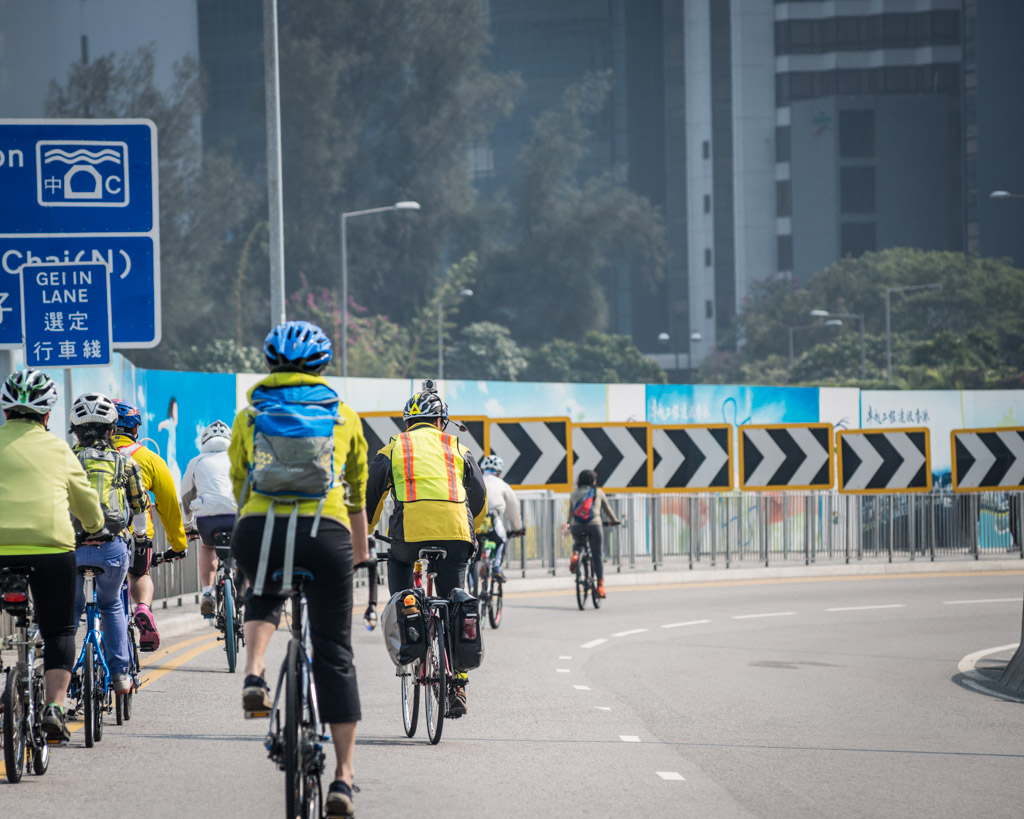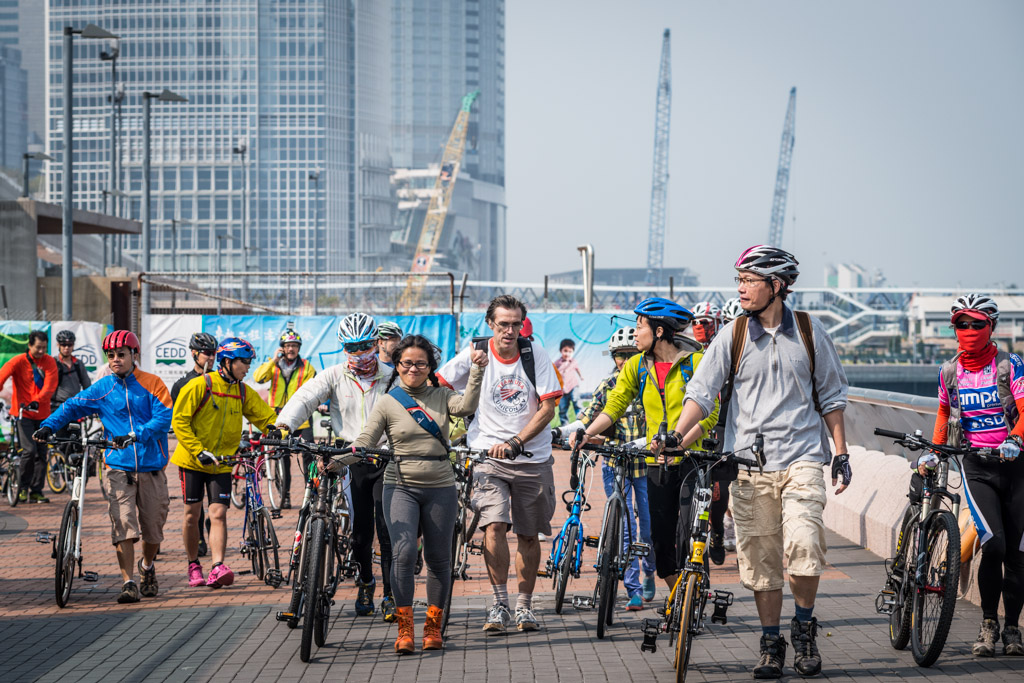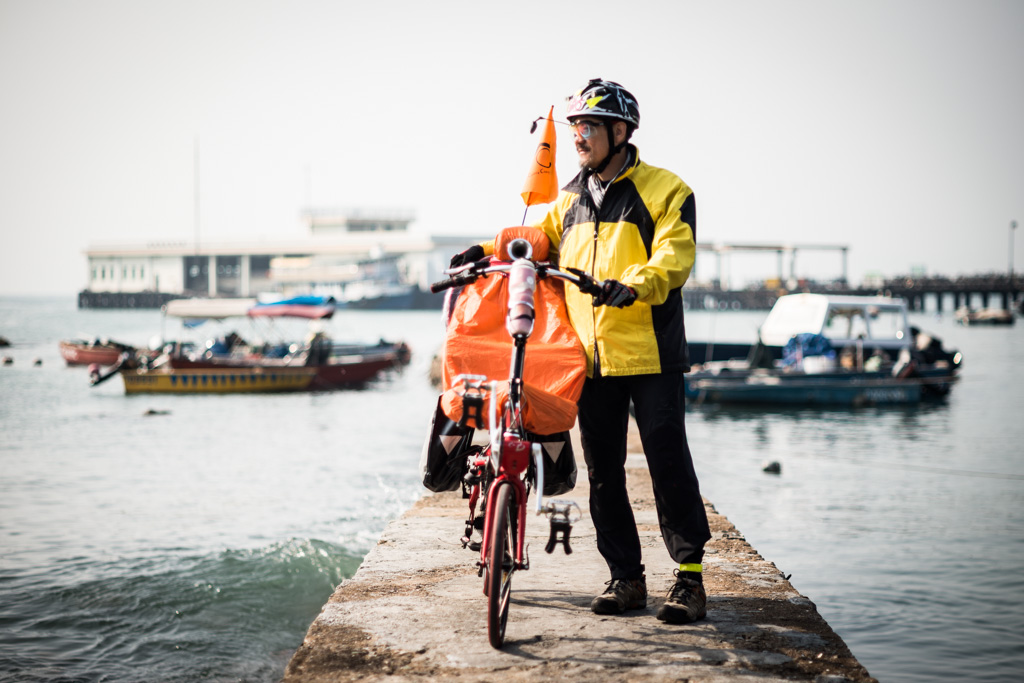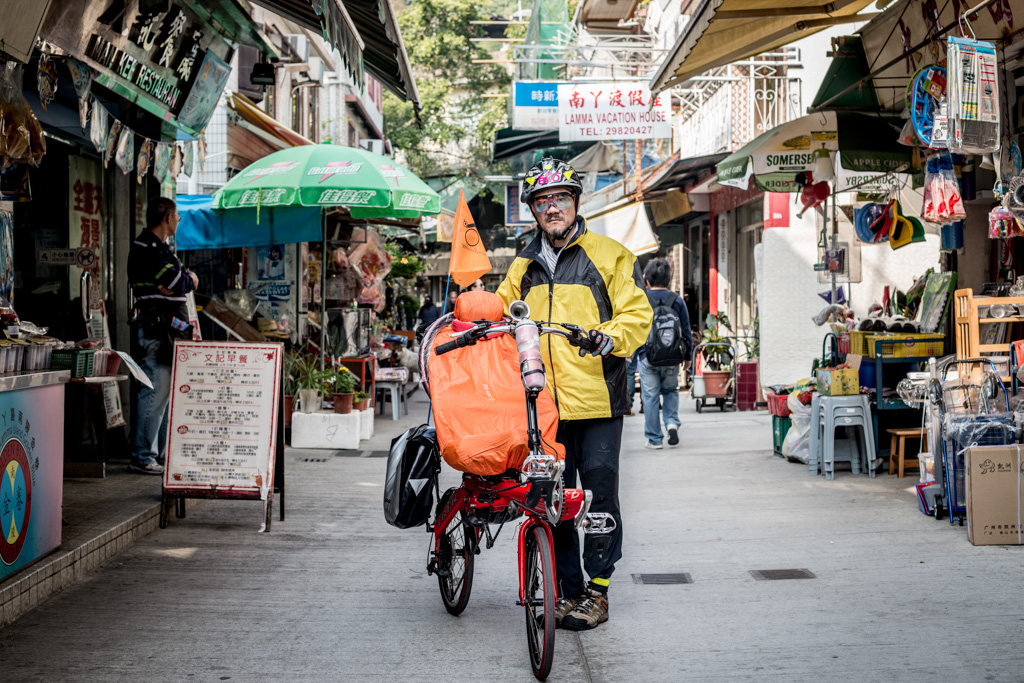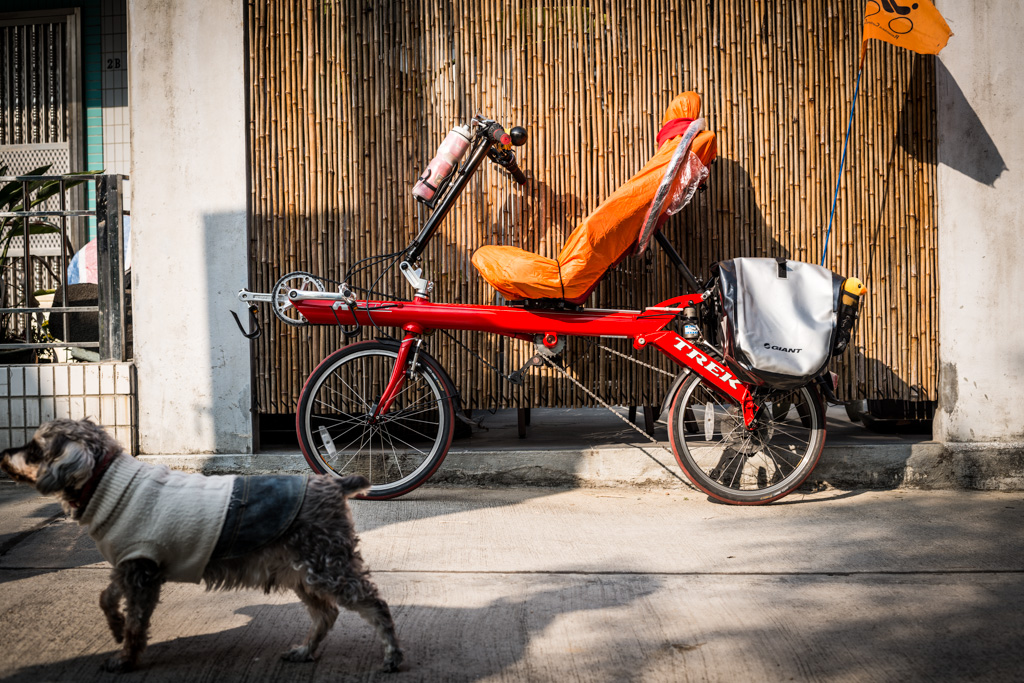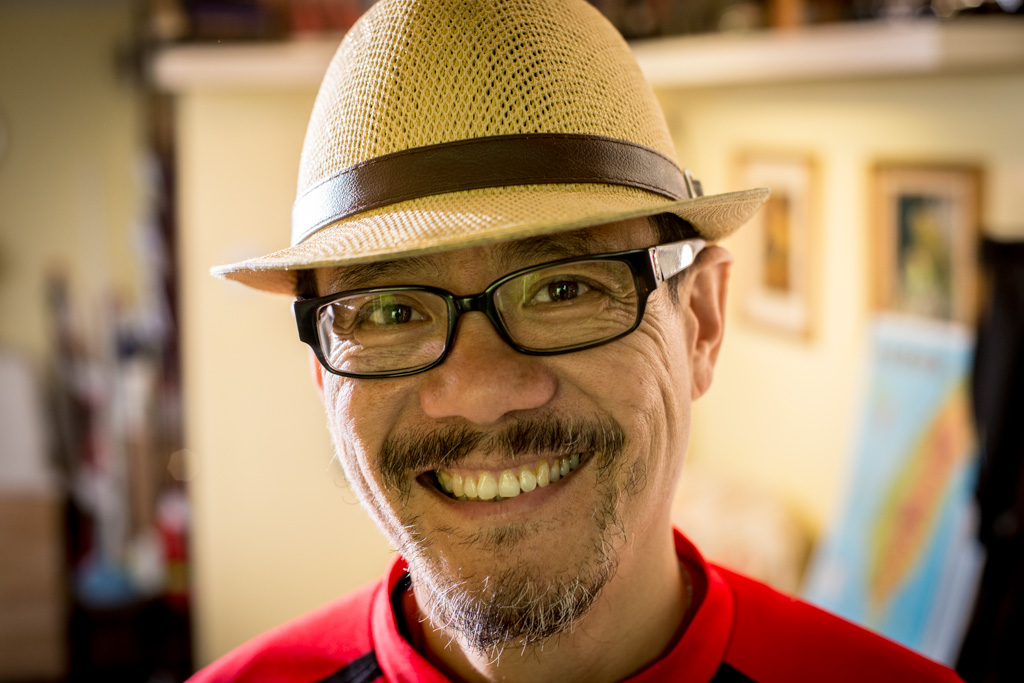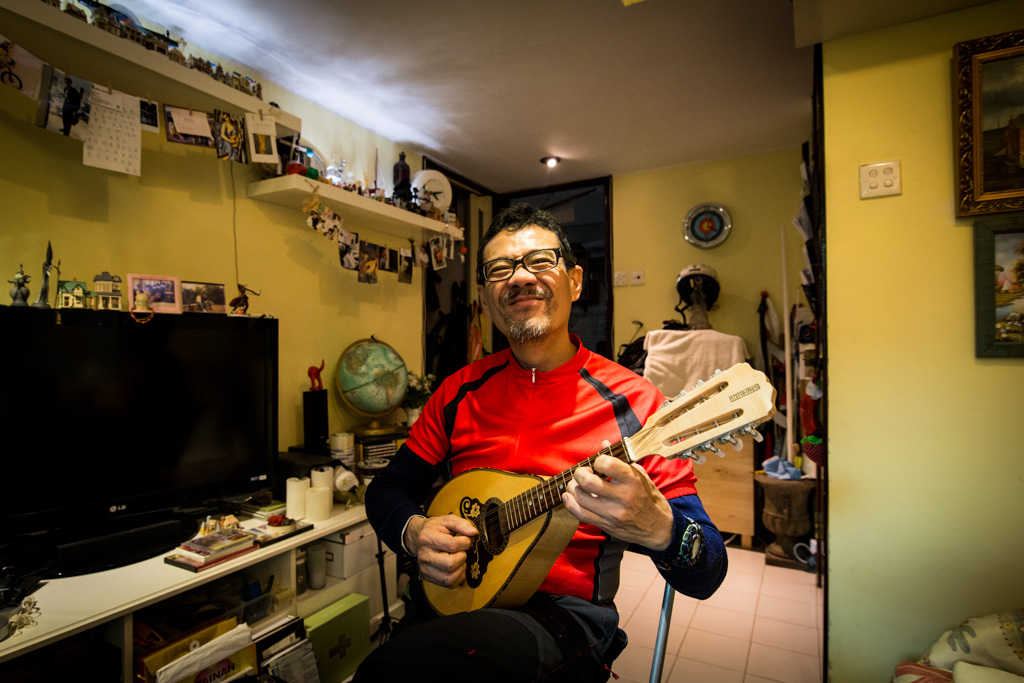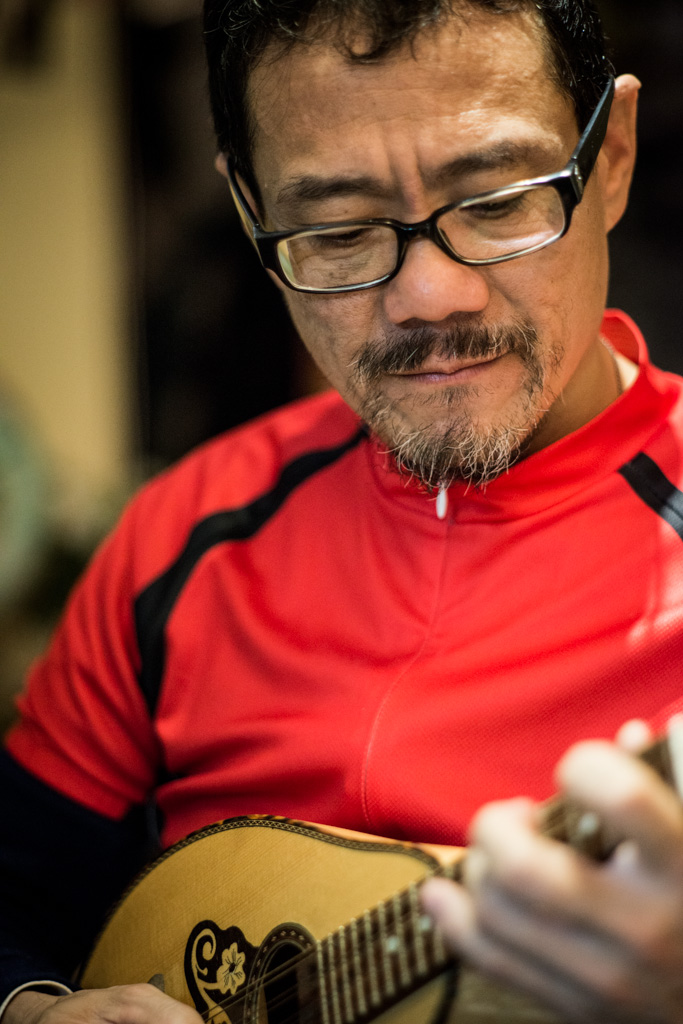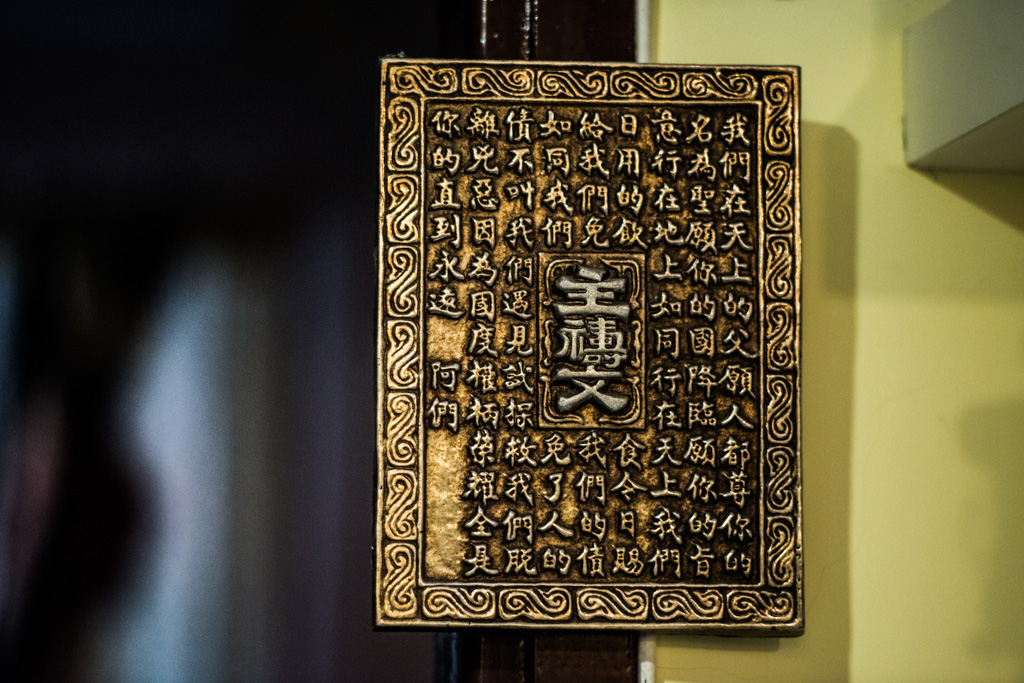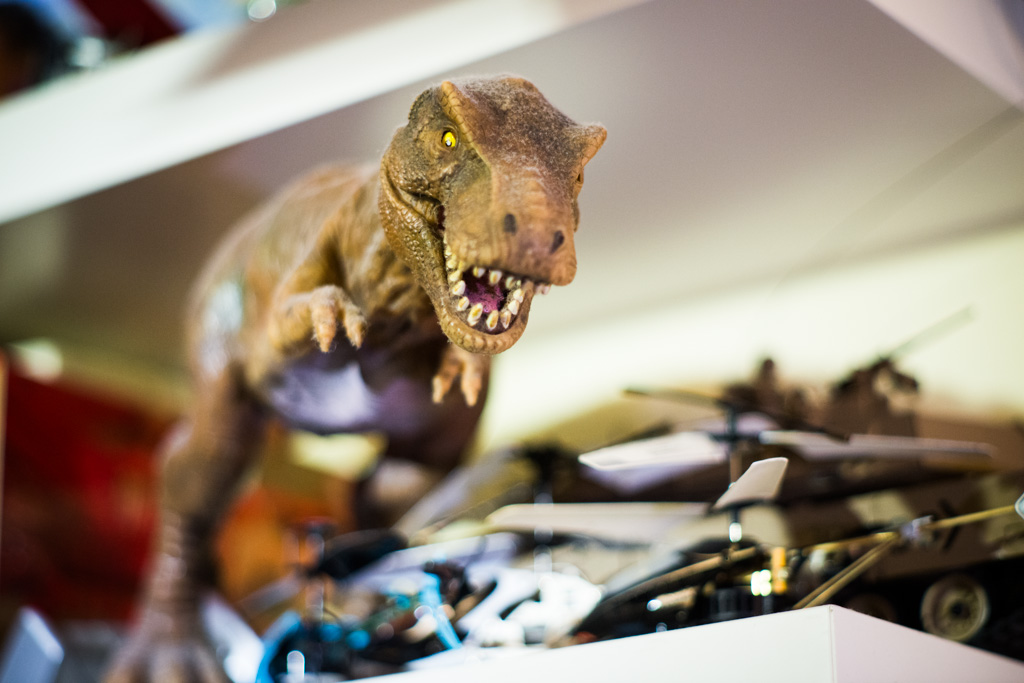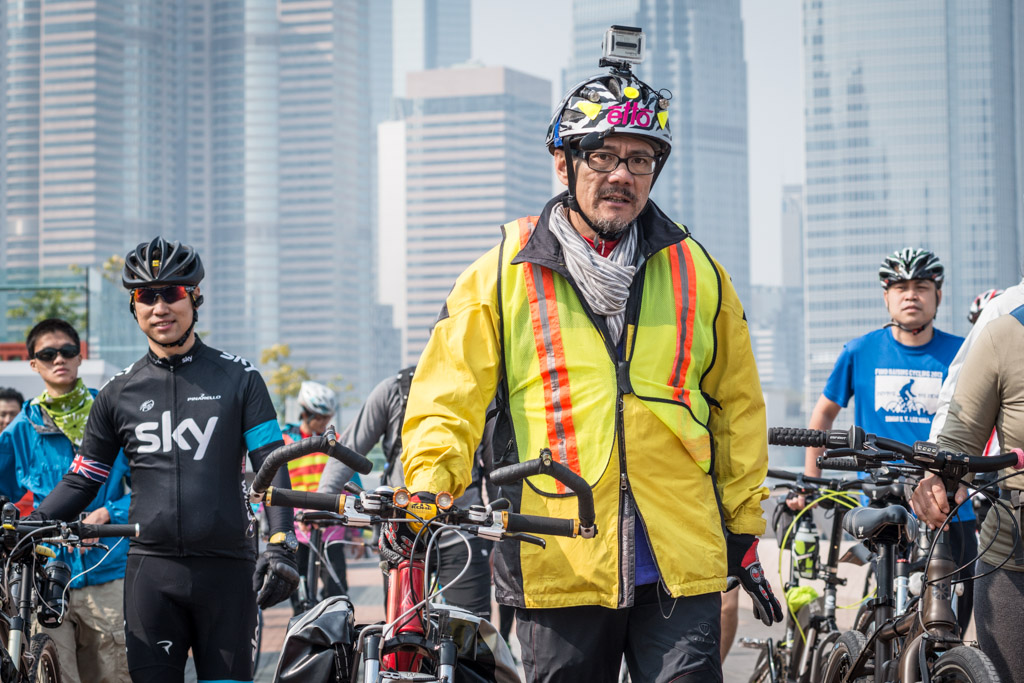It was a misty afternoon at the IFC. Victoria Harbour was shrouded in a heavy mantle of fog – or pollutants. As soon as Uncle Moon sat down for our meeting, he said firmly: “Hong Kong is a small place with a big population. Cycling is the best form of commuting.”
Many Hongkongers may not share this view, but it is with this in mind that the 54-year-old man, Lau Kam-moon, Uncle Moon, and a few like-minded friends have established a routine to cycle all the way to the new government headquarters on the first Sunday every month. Upon arrival, they always hand in a petition letter to government officials, calling for the authorities to build a waterfront cycling path in the northern part of the Hong Kong Island. At times, the poker-faced official who receives the letter would murmur that he also wants to see a bike-only lane on the island.
Indeed, as an affluent city, Hong Kong is painfully lacking in cycling lanes, and Uncle Moon takes it upon himself to fight for what he believes serious cyclists, leisure cyclists and commuters all well deserve. A talkative man with a healthy tan, he gets all excited when he talks about cycling. He suffers from diabetes, but his healthy appearance and physical stamina – courtesy of his cycling habit – shows no sign of the illness.
Throughout his childhood, Uncle Moon and his family lived in an apartment one floor above a bicycle shop in Yau Ma Tei. He could ride a two-wheel bike as soon as he could walk. Today, he commutes across Hong Kong on a bike most of the time. He has also pedalled around China, Taiwan and Europe, with friends or alone.
His device may take the form of a folding bike, mountain bike or recumbent bike, depending on where he goes. For Uncle Moon, the most gratifying thing about travelling on two wheels is the simple pleasure derived from the perfect combination of physical work and no-frills mechanic.
In Hong Kong, the environment is an obvious factor prompting a switch from car to bicycle. For one thing, vehicles on the road are the main source of air and noise pollution. And the problem has been exacerbated by reclamation projects designed to make way for new highways and therefore more cars. Uncle Moon points out that driving simply goes against the idea of environmental protection. Besides, in terms of saving time, it does not make much sense to drive a car.
"In Hong Kong, driving is more about desire than necessity. During peak hours, the roads between Central and Wan Chai are always congested. Even when there is no traffic jam, the way the roads are designed dictates you to drive extra distance to reach your destination."
By contrast, it takes Uncle Moon merely a few minutes to cycle from the Wan Chai Pier to the Lamma ferry pier. For longer journeys, cycling is not necessarily a slower option – a fact that may surprise many urban dwellers. The time it takes Uncle Moon to ride from Central to Shun Lee Estate in Kwun Tong, where he has a teaching job, is about the same as that for a car journey.
This work trip involves cycling downhill from his home on Lamma Island to the ferry pier, where he takes the ferry to Central. From Central, he pedals to the North Point Ferry Pier, competing with countless vehicles along the way. A 100-metre-long section in Wan Chai is the only part of the journey where he has to push his bike manually because cycling is not allowed there. From the North Point Ferry Pier, he takes the ferry to Kowloon City. Then it is another cycling journey covering Ma Tau Wai Road, Choi Hung Road and Clear Water Bay Road before reaching Shun Lee Estate. Apart from the uphill section on Clear Water Bay Road, the whole cycling trip is a breeze, Uncle Moon says. For the return trip, he has to pedal to Tsim Sha Tsui because the last ferry between Kowloon City and North Point has already departed by the time he gets off work.
[Route: Home – Lamma pier – ferry to Central – North Point Ferry Pier (push the bike manually for 100 metres in one section in Wan Chai) – ferry to Kowloon City – Ma Tau Wai Road – Choi Hung Road – Clear Water Bay Road (uphill) – Shun Lee Estate]
In a compact city like Hong Kong, running several errands in different places in a day can be made extra easy by getting around on a folding bike. "No time is wasted on finding a parking space or waiting for the bus."
In an ideal world, cycling is a lot more than about pedalling along the limited number of bike lanes in the New Territories at the weekend. But much to Uncle Moon’s displeasure, the government has yet to do anything to take cycling beyond the scope of sport and leisure.
By comparison, Taiwan is a bike-friendly place, where trains come with bike compartments and toilets are big enough to accommodate one person plus a bicycle. Likewise in Europe, most trains provide space designated for bicycles. In Shanghai, some age-old cycling lanes have been eliminated in the process of urbanisation. But as the trend of green living started to gather momentum in recent years, cycling lanes regain their rightful place in the city. In other Chinese cities, urban cycle hire system has been put into place enabling urban dwellers to rent a bike from one pick-up spot and drop it off at another.
The government's approach, however, is utterly out-of-date and it fails to take care of its citizens’ needs. Uncle Moon says. For instance, the flyover at Marsh Road is perennially congested and therefore barely poses danger to cyclists. Yet officials rigidly go by the rule, which stipulates that bicycles have no place on any flyover. He says the same rule applies to tunnels and highways. As a consequence, bikers have to go around a much longer way than necessary. Another example is that the Star Ferry service between Tsim Sha Tsui and Central bans bicycles aboard. So on his return trip from Shun Lee Estate, Lau is forced to take the ferry from North Point to Wan Chai and then ride his bike to the Central Ferry Piers.
Infuriating the rigid bureaucracy may be, but he manages to deploy his wit and turn the rules to his advantage. When taking the MTR with his bike, for example, he finds his own way to adhere to the rule that requires all bicycles taken on board to have the wheels removed. The trick is to replace the original wheels of his bike with smaller wheels. When questioned by MTR staff, he would shoot back: "They have been removed!"
Bullying by car drivers is an experience shared by many cyclists on the road. Not ready to let the bullies get the upper hand, Lau sometimes takes to the road on his recumbent bike, which invariably captures widespread attention. For him, cycling is not just a means to get around, but also an attitude.
Q: What do you like the most about Hong Kong?
A: Its freedom. Although things have changed recently, we can still bash Xi Jinping.
Q: What do you dislike the most about Hong Kong?
A: It's getting increasingly similar to mainland China. Lamma Island used to be a clean place where you could sit anywhere in the outdoor. Today it's been spoiled by mainland tourists. They don't really litter. They just drop this bottle and that piece of tissue 'by chance. It all boils down to a lack of culture.
Q: What does Hong Kong have to do to be sustainable?
A: It's hard. What sort of sustainable development can you achieve when you can't even develop a cycling lane? Something has got to be forgone when it comes to conservation. But will the government ever encourage people to reduce consumption and return to a life closer to nature?
